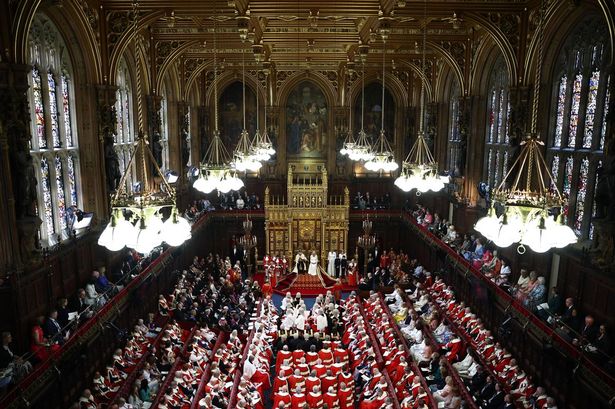Politics
Hereditary Peers Accused of Stalling Key Legislation in UK

The UK government faces significant delays in advancing key legislation due to tactics employed by hereditary peers in the House of Lords. The Labour Party, which has committed to abolishing the 92 hereditary peers as outlined in its manifesto, is contending with what they describe as constant “shenanigans” that hinder progress on vital reforms.
Labour’s efforts to eliminate hereditary peers have been met with over 100 amendments to the proposed bill. Notably, two of these amendments are longer than the bill itself. Most of the amendments have originated from Conservative peers, who appear to be attempting to obstruct the government’s legislative agenda and negotiate a compromise with Downing Street.
As a result of these delays, critical legislation, including a planning and infrastructure bill, has remained stuck in committee since July 2023. Additionally, proposals to prohibit the sale of tobacco to individuals born on or after January 1, 2009 are also experiencing setbacks.
Labour peer George Foulkes has voiced strong criticism of the hereditary peers’ actions, describing them as “outrageous.” He remarked, “They are putting their concerns for trying to keep hereditary peers above everything else that we are dealing with, and using every tactic they can to try and get some kind of concession on it.” Foulkes emphasized that the focus of these peers is on preserving their positions rather than addressing pressing issues such as workers’ rights and tenant protections.
The situation has drawn further scrutiny from advocacy groups. Darren Hughes, Chief Executive of the Electoral Reform Society, stated, “The government was elected on a legitimate manifesto that commits to abolishing the hereditary peerage. The idea that it is being held to ransom by unelected peers in the bloated second chamber to get their way is preposterous.” He reiterated the necessity for reforms within the House of Lords to ensure those shaping laws are accountable to the people they govern.
In response to these accusations, Lord Parkinson of Whitley Bay defended the role of the House of Lords, asserting that it is their responsibility to scrutinize legislation and suggest improvements. He noted, “It is the Government who have chosen to prioritise a Bill about membership of the House of Lords when there are so many other pressing issues facing our nation.” While acknowledging the government’s pledge to end hereditary peerage as a route of entry, he contested the notion that this should come at the expense of active parliamentarians.
The ongoing conflict highlights the tension between reforming the House of Lords and the strategies employed by hereditary peers to maintain their positions. As the Labour Party continues to push for legislative changes aimed at improving the lives of workers and the public, the outcome of this legislative standoff remains uncertain.
-

 Entertainment2 months ago
Entertainment2 months agoIconic 90s TV Show House Hits Market for £1.1 Million
-

 Lifestyle4 months ago
Lifestyle4 months agoMilk Bank Urges Mothers to Donate for Premature Babies’ Health
-

 Sports3 months ago
Sports3 months agoAlessia Russo Signs Long-Term Deal with Arsenal Ahead of WSL Season
-

 Lifestyle4 months ago
Lifestyle4 months agoShoppers Flock to Discounted Neck Pillow on Amazon for Travel Comfort
-

 Politics4 months ago
Politics4 months agoMuseums Body Critiques EHRC Proposals on Gender Facilities
-

 Business4 months ago
Business4 months agoTrump Visits Europe: Business, Politics, or Leisure?
-

 Lifestyle4 months ago
Lifestyle4 months agoJapanese Teen Sorato Shimizu Breaks U18 100m Record in 10 Seconds
-

 Politics4 months ago
Politics4 months agoCouple Shares Inspiring Love Story Defying Height Stereotypes
-

 World4 months ago
World4 months agoAnglian Water Raises Concerns Over Proposed AI Data Centre
-

 Sports4 months ago
Sports4 months agoBournemouth Dominates Everton with 3-0 Victory in Premier League Summer Series
-

 World4 months ago
World4 months agoWreckage of Missing Russian Passenger Plane Discovered in Flames
-

 Lifestyle4 months ago
Lifestyle4 months agoShoppers Rave About Roman’s £42 Midi Dress, Calling It ‘Elegant’









